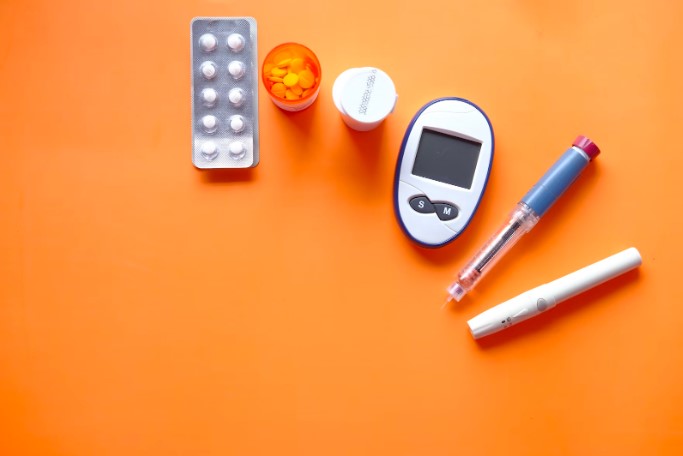Diabetes mellitus refers to a group of diseases that affect how the body uses blood sugar (glucose). Glucose is an important source of energy for the cells that make up the muscles and tissues. It’s also the brain’s main source of fuel.
The main cause of diabetes does vary by type. However, no matter what type of diabetes you have, it may lead to excess sugar in the blood. Having too much sugar in the blood may lead to very serious health problems.
Chronic diabetes conditions include “type 1 diabetes” and “type 2 diabetes”. Potentially reversible diabetes conditions include “prediabetes” and “gestational diabetes”. Prediabetes happens when blood sugar levels are higher than normal, but not high enough to be called diabetes. Prediabetes can lead to diabetes unless steps are taken to prevent it. Gestational diabetes happens during pregnancy and may go away after giving birth.
SYMPTOMS / SIGNS OF DIABETES
Diabetes symptoms depend on the level of your blood sugar, the higher it is, the more severe the symptoms may be.
It is possible to not have any symptoms when you have prediabetes, gestational diabetes or type 2 diabetes. For type 1 diabetes, symptoms tend to come on quickly and be more severe.
These are some of the symptoms of type 1 diabetes and type 2 diabetes:
- Feeling more thirsty than usual.
- Urinating often, especially at night.
- Losing weight without trying.
- Being very hungry.
- Presence of ketones in the urine. Ketones are a byproduct of the breakdown of muscle and fat that happens when there’s not enough available insulin.
- Feeling tired and weak.
- Feeling irritable or having other mood changes.
- Having blurry vision.
- Having slow-healing sores.
- Getting a lot of infections, such as gum, skin and vaginal infections.
- Tingling in the hands or feet.
- Itchy, dry skin
SYMPTOMS OF TYPE 1 DIABETES
People suffering from type 1 diabetes may also experience nausea, vomiting, or stomach pains. This type of diabetes can develop in just a few weeks or months and can be very severe. Type 1 diabetes usually starts when you’re a child, teen, or young adult but it may happen at any age.
SYMPTOMS OF TYPE 2 DIABETES
Type 2 diabetes symptoms often take years to develop. Some people even do not notice any symptoms at all. Type 2 diabetes usually starts when you’re an adult, even though more and more children and teens are developing it. Since symptoms are hard to identify, it’s important to know the risk factors for type 2 diabetes. Make sure to visit your doctor if you have any of them.
SYMPTOMS OF GESTATIONAL DIABETES
Gestational diabetes (diabetes during pregnancy) usually doesn’t have any symptoms. If you’re pregnant, your doctor should test you for gestational diabetes between 24 and 28 weeks of pregnancy. If necessary, you need to make changes to protect your health and your baby’s health.
SEE A DOCTOR?
Make sure to consult a doctor if you think you or your child may have developed diabetes. In case you notice any diabetes symptoms, see your physician immediately. The earlier the condition is diagnosed, the sooner treatment can be started and severe issues avoided.
See a doctor regularly when you have already been diagnosed with diabetes. After you have received your diagnosis, you will need close medical follow-up until your blood sugar levels have stabilized.
Coming to a close…
WE HAVE NOW TALKED ABOUT THE SIGNS OF DIABETES, HOWEVER, YOU MAY WANT TO CHECK OUT THIS STRANGE TWIST TO THE DISEASE…
I made an interesting discovery about Diabetes. I found that men develop a different form of diabetes. It’s not the standard way we thought.
What you might be interested in – is how spotting it, and handling it is different for men.
It all ties into your natural Testosterone levels.
Brad Pilon created a video for men about Male Type 2 Diabetes. It’s something I think you’d really like. For instance, a simple belly pinch test to see your risk of catching Male Diabetes.
Maybe you’re interested, maybe not. Who knows.
If you are, click the link below and spend a few minutes watching the video. You can see if some of the ideas seem like a fit.
=> Watch video
